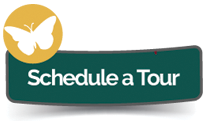May Is National Stroke Month
Strokes are one of the leading health concerns facing American seniors today. The good news is that up to 80% of strokes are preventable, treatable and beatable! When it comes to our health, knowledge is power.
According to the American Stroke Association, there are seven ways you can prevent a stroke:
- Monitor your blood pressure – high blood pressure is the leading cause of strokes.
- Control your cholesterol – high cholesterol increases the risk of blocked arteries.
- Keep your blood sugar down – having diabetes more than doubles your risk of stroke.
- Get active – aim for 150 minutes of moderate activity per week.
- Eat better – start by including fruits and vegetables with every meal and snack.
- Lose weight if you need to – work with your doctor to establish a nutrition and fitness plan that’s right for you.
- Don’t smoke, period!
If you do need to treat a stroke, it’s important to know the signs. This allows you to respond instantly in case of an emergency. Think F.A.S.T. to identify if someone might be experiencing a stroke:
Face Drooping
Does one side of the face droop or is it numb? Ask the person to smile. Is the person’s smile uneven or lopsided?
Arm Weakness
Is one arm weak or numb? Ask the person to raise both arms. Does one arm drift downward?
Speech
Is speech slurred? Is the person unable to speak or hard to understand? Ask the person to repeat a simple sentence.
Time to Call 9-1-1
If the person shows any of these symptoms, even if the symptoms go away, call 9-1-1 and get them to the hospital immediately.
There are other symptoms of stroke out there, so be aware if you or someone you know has any of the following:
- Sudden NUMBNESS or weakness of face, arm, or leg, especially on one side of the body
- Sudden CONFUSION, trouble speaking or understanding speech
- Sudden TROUBLE SEEING in one or both eyes
- Sudden TROUBLE WALKING, dizziness, loss of balance or coordination
- Sudden SEVERE HEADACHE with no known cause
For more information, visit https://www.strokeassociation.org.

